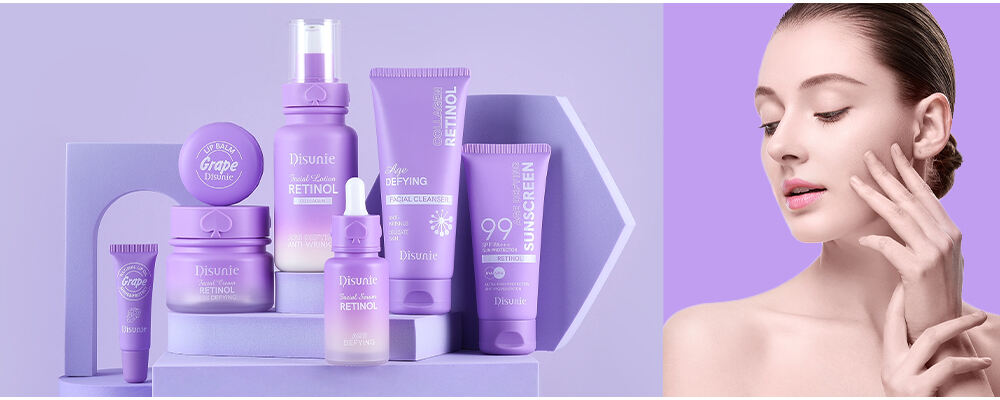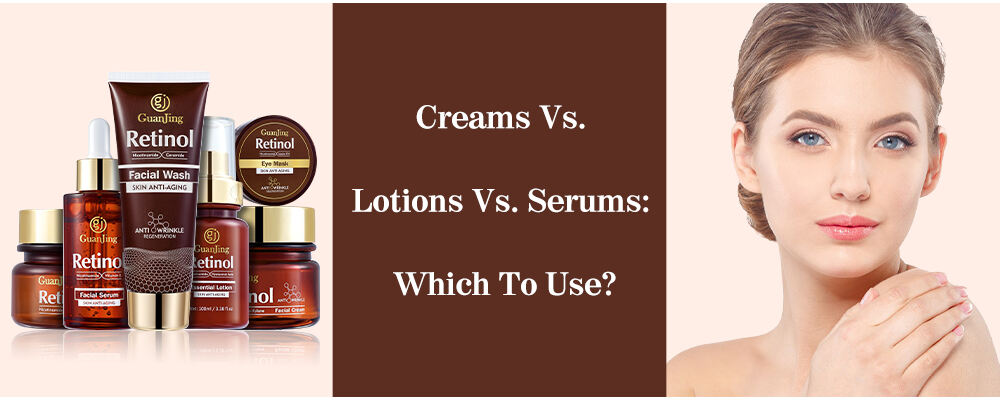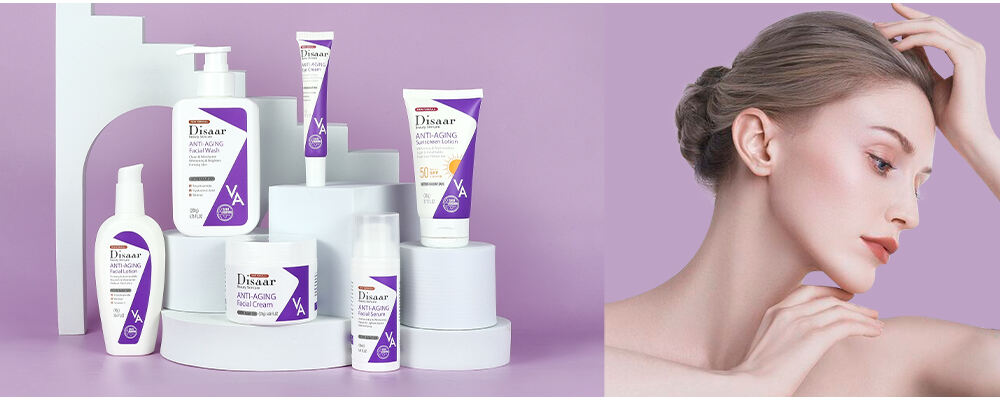Retinol, a derivative of vitamin A, is celebrated in dermatology for its remarkable effects on skin health. It works wonders by enhancing skin texture, primarily through the promotion of collagen production and increased cell turnover. This results in a refined complexion that looks youthful and fresh. Clinical studies have shown that retinol's ability to deeply penetrate the skin allows it to effectively combat aging signs more quickly than many other ingredients—making it a staple in anti-aging skincare routines.
Retinol and retinoids are often discussed interchangeably, but they have distinct differences. Retinol is accessible over the counter and geared towards cosmetic use. Retinoids, however, encompass a broader category including prescription-strength alternatives known for their higher potency. The difference in concentration is critical; while retinol is less potent than prescription retinoids, it still offers similar anti-aging benefits but with reduced side effects. Consistent application of retinol is proven to deliver substantial anti-aging effects without the irritation often associated with stronger retinoids, ensuring gentler yet effective results for everyday use.
Retinol addresses skin aging by working at the cellular level to enhance cell turnover, which results in the removal of dead skin cells and the growth of newer, healthier ones. This mechanism rejuvenates skin elasticity effectively, as retinol stimulates fibroblasts—the cells responsible for collagen production. Dermatological evidence supports that retinol significantly reduces fine lines and wrinkles through these biological interactions, showcasing its power to renew and revitalize skin deeply. As it boosts skin rejuvenation, retinol remains one of the most trusted and effective solutions in combating the signs of aging.

Retinol is renowned for its effectiveness in addressing loose or crepey skin by substantially boosting collagen production and enhancing skin elasticity. This process works to tighten the skin in areas affected by the aging process like the arms and thighs. Various clinical studies suggest that regular application of retinol-based products can result in visibly firmer skin within weeks. Users often report noticeable improvements in skin tightness and overall texture, making retinol a preferred choice for body care routines aimed at combating age-related skin changes.
Retinol significantly enhances skin texture by promoting rapid cell turnover, a process that accelerates the healing of acne scars. This powerful ingredient is particularly effective in diminishing the appearance of body acne scars, leading to a smoother skin surface. Studies have demonstrated that retinol can transform uneven skin texture, offering users a renewed smoothness and reduction in blemishes. Consistent use of retinol products has provided many users with remarkable improvements, making it a valuable addition to skincare regimens.
Retinol is effective in targeting hyperpigmentation by enhancing cell turnover, thereby aiding in the fading of dark spots and the evening of skin tone. Its ability to regulate melanin has been supported by research, contributing to a brighter and more uniform complexion. Many users report a significant reduction in tanning and dark spots after consistent application, showcasing retinol's prowess in providing clear skin. Retinol's ability to promote a balanced skin tone makes it an essential component for anyone dealing with hyperpigmentation.
Retinol is a powerhouse ingredient that significantly enhances fibroblast function, which is crucial for boosting collagen production, essential for maintaining skin elasticity. Scientific studies indicate that consistent application of retinol over a 12-week period can lead to increased collagen synthesis, thereby improving the skin's structural integrity. This increase not only helps in firming the skin but also imparts a youthful and plump appearance. By effectively addressing the signs of aging, retinol offers a reliable method for enhancing skin elasticity.
Retinol's ability to accelerate skin cell turnover is one of its key advantages, facilitating the minimization of fine lines and enhancing overall skin smoothness. Research supports these findings, showing that regular users of retinol notice substantial improvements in skin clarity and texture. This process helps the skin shed dull and dead cells, revealing fresher and more vibrant skin beneath. For those aiming for a smoother complexion, retinol proves to be an indispensable component of a skincare regimen.
Retinol doesn't just rejuvenate the skin; it also plays a crucial role in strengthening the skin barrier over time. This improved resilience helps protect the skin from environmental stressors. Studies have highlighted that regular retinol users report fewer instances of dryness and irritation as their skin barrier becomes more robust. The enduring benefits include enhanced protection against pollutants, sun damage, and other daily skin aggressors, making retinol a comprehensive solution for long-term skin health.
Choosing the correct concentration of retinol is pivotal for effective and safe skin care. Lower concentrations, typically between 0.1% to 0.5%, are recommended for sensitive skin types to minimize irritation and allow the skin to gradually adjust. For individuals with more resilient skin, medium concentrations of around 0.5% to 1% can deliver enhanced results without causing adverse reactions. It's often advised to begin with these lower concentrations to build skin tolerance before considering higher strengths. This gradual approach ensures that your skin reaps the benefits of retinol without undergoing unnecessary stress or damage. Consulting a dermatologist can provide personalized guidance based on individual skin sensitivities and goals.
Choosing between creams, lotions, and serums depends on your skin type and personal preferences. Creams, with their thicker consistency, provide an occlusive barrier that locks in moisture, making them ideal for dry or sensitive skin that needs extra hydration. Lotions offer a balance; they are lighter than creams and absorb quicker, suitable for most skin types and those who prefer a lighter feel. Serums contain higher concentrations of active ingredients and are designed for targeted results, making them potent yet lightweight, perfect for those with specific skin concerns. A study highlighted that a formulation aligned with one's skin needs significantly enhances retinol's efficacy, promoting smoother and healthier skin.

Pairing retinol with complementary ingredients can enhance its effectiveness and mitigate potential dryness. Niacinamide is a standout choice, known for its ability to improve skin texture and reduce redness, seamlessly working alongside retinol to minimize irritation. Meanwhile, hyaluronic acid offers intense hydration, counteracting retinol-induced dryness by attracting moisture to the skin's surface. Research supports the synergistic effects of these combinations, suggesting that incorporating such ingredients leads to a healthier, more radiant complexion. As retinol can be drying, balancing it with these ingredients fosters a comprehensive skincare routine, optimizing both hydration and rejuvenation.
Introducing retinol into your skincare routine requires a gradual approach to prevent irritation. Initially, applying retinol twice a week is generally effective for most skin types. Dermatologists often recommend this frequency as it allows your skin to gradually build a tolerance to retinol, minimizing the risk of adverse reactions. As your skin adapts, you can slowly increase the frequency of application to optimize results. It's essential to follow these frequency guidelines to achieve the desired benefits of retinol without causing damage to the delicate skin barrier.
Retinol is known for causing dryness, so using an effective moisturizer after application is crucial. Hydrating products that include ingredients like glycerin and ceramides can significantly help in retaining moisture. These ingredients form a protective barrier on the skin, preventing moisture loss and enhancing the overall hydration level. Expert advice emphasizes the importance of maintaining proper hydration to boost retinol's effectiveness while reducing potential side effects such as flakiness and sensitivity.
When using retinol, protecting your skin from the sun becomes paramount due to increased photosensitivity. Applying a high-SPF sunscreen daily is non-negotiable to prevent sunburn and to maintain skin health. Numerous studies have shown that neglecting sun protection while using retinol can lead to heightened risks of UV damage. Therefore, incorporating sun protection into your daytime routine is essential to preserve the gains achieved from retinol treatments, ensuring your skin remains smooth and youthful.

Retinol is known for enhancing skin texture by promoting collagen production and cell turnover, which rejuvenates and maintains a youthful complexion.
Retinol is available over the counter and is less potent, focusing on cosmetic use, while retinoids are a broader category including prescription-strength options with higher potency.
Yes, lower concentrations of retinol, usually between 0.1% to 0.5%, are recommended for sensitive skin to minimize irritation and build tolerance gradually.
Yes, using sunscreen is essential as retinol increases photosensitivity, making the skin more vulnerable to UV damage without protection.
It depends on skin type and preference. Creams are best for dry skin, lotions suit most skin types, and serums are ideal for targeted treatments.